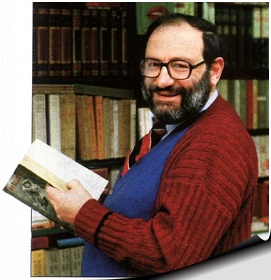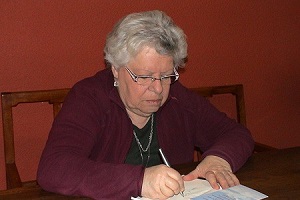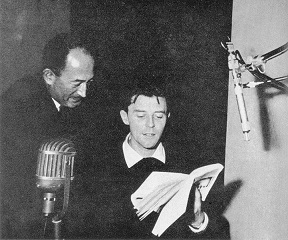De Italiaanse schrijver Umberto Eco werd geboren op 5 januari 1932 in Allasandria. Zie ook alle tags voor Umberto Eco op dit blog.
Uit: The Prague Cemetery (Vertaald door Richard Dixon)
“A passerby on that gray morning in March 1897, crossing, at his own risk and peril, Place Maubert, or the Maub, as it was known in criminal circles (formerly a center of university life in the Middle Ages, when students flocked there from the Faculty of Arts in Vicus Stramineus, or Rue du Fouarre, and later a place of execution for apostles of free thought such as Étienne Dolet), would have found himself in one of the few spots in Paris spared from Baron Haussmann’s devastations, amid a tangle of malodorous alleys, sliced in two by the course of the Bièvre, which still emerged here, flowing out from the bowels of the metropolis, where it had long been confined, before emptying feverish, gasping, and verminous into the nearby Seine. From Place Maubert, already scarred by Boulevard Saint-Germain, a web of narrow lanes still branched off, such as Rue Maître-Albert, Rue Saint-Séverin, Rue Galande, Rue de la Bûcherie, Rue Saint-Julien-le-Pauvre, as far as Rue de la Huchette, littered with filthy hotels generally run by Auvergnat hoteliers of legendary cupidity, who demanded one franc for the first night and 40 centimes thereafter (plus 20 sous if you wanted a sheet).
If he were to turn into what was later to become Rue Sauton but was then still Rue d’Amboise, about halfway along the street, between a brothel masquerading as a brasserie and a tavern that served dinner with foul wine for two sous (cheap even then, but all that was affordable to students from the nearby Sorbonne), he would have found an impasse, or blind alley, which by that time was called Impasse Maubert, but up to 1865 had been called Cul-de-sac d’Amboise, and years earlier had housed a tapis-franc (in underworld slang, a tavern, a hostelry of ill fame, usually run by an ex-convict, and the haunt of felons just released from jail), and was also notorious because in the 18th century there had stood here the laboratory of three celebrated women poisoners, found one day asphyxiated by the deadly substances they were distilling on their stoves.”

Umberto Eco (Allasandria, 5 januari 1932)


